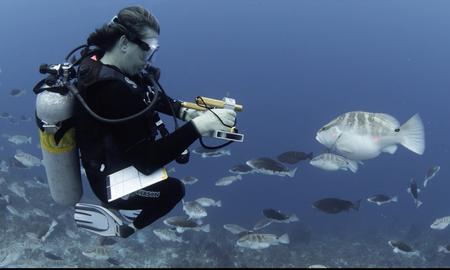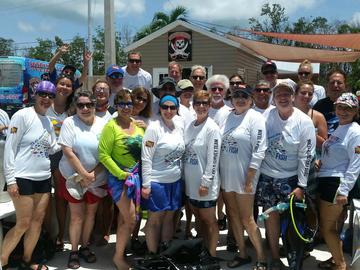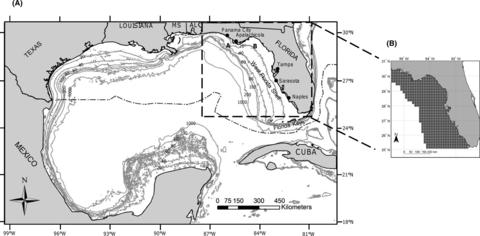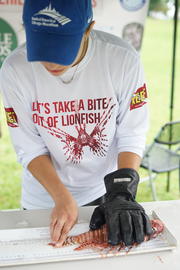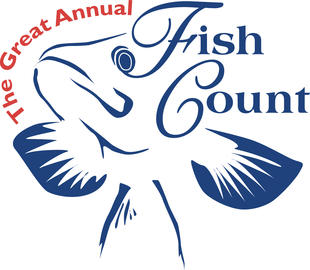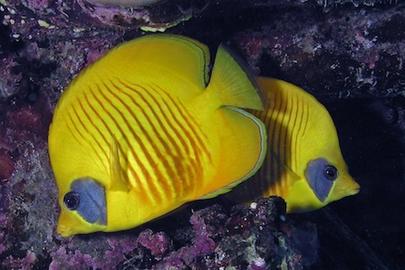REEF’s Grouper Moon Project, ongoing since 2001, was recently featured in Scientific American as a model for natural resource science. The project is a powerful collaboration between scientists at REEF, Cayman Islands Department of Environment, Scripps Institution of Oceanography, and Oregon State University, with input from Caymanian fishermen and support by local businesses. The work has connected cutting-edge science with the real-world need for understanding and protecting Nassau Grouper and their spawning aggregations.
REEF members are at the heart of our grassroots marine conservation programs. More than 70,000 divers, snorkelers, students, and armchair naturalists stand behind our mission.
This month we highlight Hideko Kawabata, REEF member since 2007. Hideko has conducted 159 REEF surveys, and has been on many REEF Trips to the Caribbean, Hawaii, and Indo-Pacific. She is a Level 3 TWA surveyor. Here's what she had to say about REEF:
How did you first learn about REEF?
To commemorate 25 years of REEF’s Volunteer Fish Survey Project, a group of volunteer citizen scientist divers joined REEF staff and interns, along with co-founder Paul Humann, for a special 25th anniversary Field Survey Trip in Key Largo, Florida, last month. Key Largo is home to REEF Headquarters and was also the location for the very first REEF Field Survey Trip, held in July 1993. The attendees on the 2018 trip surveyed the same sites visited by participants on the 1993 Field Survey, to observe how fish populations have changed over past 25 years.
REEF's Volunteer Fish Survey Project dataset was one of 73 fish and invertebrate monitoring programs that were systematically cataloged and evaluated as part of a mulit-year study funded by the National Oceanic and Atmospheric Administration (NOAA) RESTORE Act Science Program. The effort was led by Arnaud Gruss from the University of Miami, and involved dozens of collaborators, including REEF's Director of Science, Christy Pattengill-Semmens.
REEF members are at the heart of our grassroots marine conservation programs. More than 70,000 divers, snorkelers, students, and armchair naturalists stand behind our mission.
Last month, REEF kicked off our 2018 Lionfish Derby series at the Phillip and Patricia Frost Museum of Science in Miami. Four teams competed on June 9 and 10 to bring in a total of 309 fish. The largest lionfish caught was 411mm (just over 16 inches) and the smallest was 112mm (about 4.5 inches.) We have two more derbies coming up this month - in Sarasota at Mote Marine Lab and Aquarium on July 6 - 8, and in Ft. Lauderdale at 15th St. Fisheries on July 13 - 14, and a few more later this summer and fall.
Want to 'talk fish' with other REEF fish ID enthusiasts? We've created eight regional groups on Facebook so you can connect with others, share your photos and observations, ask questions, etc. Whether you're brand new to the world of fishwatching, or have been doing it for years, all REEF members are welcome. Join as many as you like.
We are in the midst of our annual summer fundraising campaign, and are excited to share that thanks to the generosity of three longtime supporters, all donations made this summer will be matched dollar for dollar! We are so grateful for everyone who has already contributed to our summer fundraising campaign, enabling us to continue our marine conservation work.
Alli attended Rutgers University where she obtained a Ph. D. in Ecology and Evolution.

